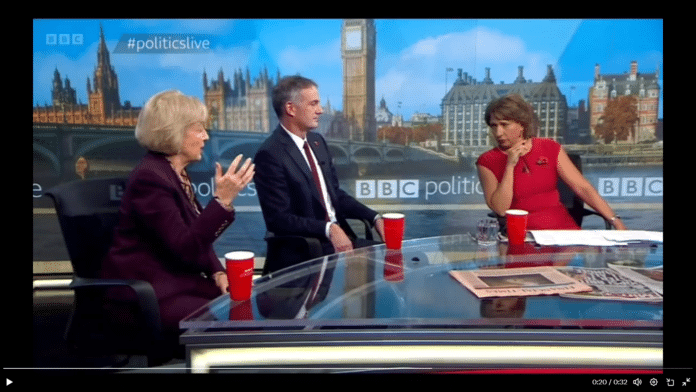What we have here is a Tory politician telling us that energy prices are going to take up to ten years to come down. That is 2033!
Jo Coburn: When will energy bills come down if I vote Tory?
— Haggis_UK ???????? ???????? (@Haggis_UK) November 8, 2023
Andrea Leadsom(Tory MP): "Within the next 10 years" ????#PoliticsLive pic.twitter.com/v12Xq8Marg
Try to imagine the devastation to lives across the country from something that could have been avoided.
Why are energy bills so high?
As gas and oil companies continue to report soaring profits, vulnerable households are grappling with escalating expenses and untenable decisions. Discover the causes behind our energy crisis, identify the responsible parties, and explore potential solutions.
Why are energy costs on the rise?
In February 2022, Ofgem, the energy regulator, announced a 54% increase in the price cap, allowing energy companies to charge customers more from April onwards. This resulted in millions of UK residents facing higher energy bills.
What is the price cap?
Despite widespread misinformation, Ofgem attributes the surge in heating costs to a historic surge in global gas prices.
Who bears responsibility for the UK’s energy crisis?
Over the past decade, the UK government has neglected investments in insulation, disregarding calls from environmental and fuel poverty organisations. A staggering 87% of UK households rely on gas, making us particularly susceptible to global price fluctuations. Furthermore, our homes are inadequately insulated compared to those in other European countries.
Successive governments, including the current one, have missed opportunities to invest substantially in renewable energy. Prioritising clean energy and home insulation would have reduced the demand for gas to heat homes and made us less vulnerable to current price hikes.
The consequences will be dire, as more people must choose between buying food and heating their homes. Additionally, with price increases expected to persist for many years, health disparities will widen as households are compelled to keep their heating switched off. The elderly and clinically vulnerable are most at risk, as colder homes can lead to:
- A higher risk of respiratory infections and bronchitis
- Added strain on the cardiovascular system
- Aggravation of asthma symptoms or the onset of asthma
- An increased likelihood of mental health issues.
No one should have to make the painful choice between food and warmth, especially when oil and gas conglomerates are reporting record-breaking profits. Urgent support is necessary to aid those most vulnerable.
What about transitioning to green energy?
Many organisation not profiting from fossil fuels are advising the public to switch to green energy. Normally, they would recommend exploring established non-fossil fuel companies, such as Ecotricity or Good Energy. However, due to the ongoing energy crisis, now may not be the ideal time to switch energy suppliers.
How can we resolve the energy crisis?
The energy crisis should serve as a wake-up call for the government to take the long-overdue step of severing ties with unreliable fossil fuels. It is outrageous that it has come to this, but it is now evident that we need a more dependable system for heating our homes once and for all.
The government should:
- Swiftly impose a windfall tax on oil and gas companies to fund assistance for the most vulnerable households.
- Assist individuals in insulating their homes, beginning with areas identified as energy crisis hotspots.
- Implement a comprehensive, long-term strategy to transition to more reliable and cost-effective renewable energy sources.
Penny Lane
If you would like your interests… published, submit via https://dorseteye.com/submit-a-report/
Join us in helping to bring reality and decency back by SUBSCRIBING to our Youtube channel: https://www.youtube.com/channel/UCQ1Ll1ylCg8U19AhNl-NoTg SUPPORTING US where you can: Award Winning Independent Citizen Media Needs Your Help. PLEASE SUPPORT US FOR JUST £2 A MONTH https://dorseteye.com/donate/







